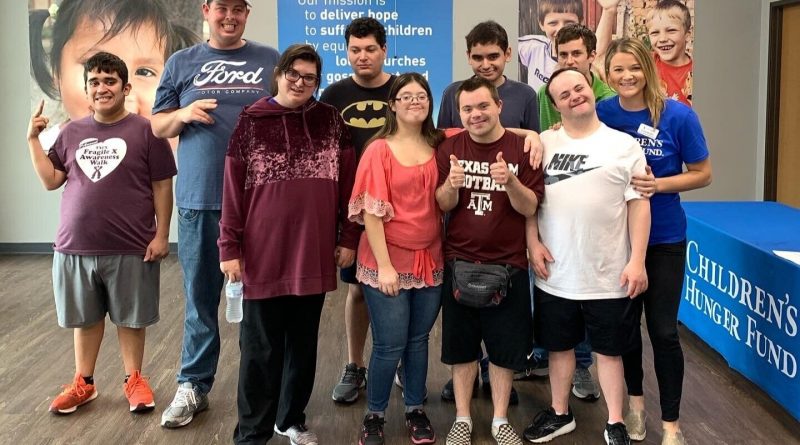Grants for Disabled: San Antonio Day Program Fills Void for Adults with Special Needs
When their autistic son who was also born with Down Syndrome had outgrown the public-school system, Cindy and Bryan Boynton were confronted with a dilemma. They needed to find a place where Drew could go every day that would not only meet his needs, but give him a sense of joy and purpose as well.
Cindy Boynton didn’t look very far. Earlier this year, she used her predicament to create the SA Life Academy, a day program housed in St. Andrews Methodist Church where Drew and adults in San Antonio like him with disabilities can gain fulfillment through continuing education and community service.
SA Life Academy offers disabled adults a variety of activities – from visiting San Antonio Botanical Garden to baking cookies for city firefighters. The students have also visited museums, seen movies, gone bowling, watched the ballet perform, boarded the boats on the River Walk, pitched in at the San Antonio Food Bank and helped prepare food for Meals on Wheels.
As a 501(c)(3) nonprofit, SA Life Academy relies on grants, private donations and fundraising in addition to program tuition.
Libby Hikind, founder and CEO of GrantWatch.com, said the recent introduction of one-year-old Lucas Warren, the first Gerber Baby with Down Syndrome, will raise greater awareness about the plight of children with the condition and attract corporate support. Foundations, corporate sponsors and state and local governments are a good source of funding for nonprofits that engage adults with intellectual disabilities in meaningful, social, vocational and educational pursuits.
“With so many in need of services, nonprofits have only scratched the surface for providing advanced educational, housing and employment opportunities for adults with special needs,” said Hikind.
While not widely publicized, Hikind said there are numerous funding opportunities from private and government sources posted on GrantWatch.com to help the disabled as well as their families and care providers with financial obligations, medical expenses and even equipment.
“Adults with special needs have the capability of learning,” said Cindy Boynton. “They need that opportunity. They have so much potential to unlock. I don’t think we should give up on them.”
The curriculum at SA Life Academy is structured around academics, building relationships, community service, creative expression and teaching healthy habits. Through routines and role-playing, the students learn social skills and other life lessons. SA Life Academy has three teachers on staff who have backgrounds in special education.
Currently, SA Life Academy’s program serves a maximum of 12 students each day. Once students enter the program, they are welcome to stay indefinitely. There is a waiting list that Boynton hopes can soon be turned into a second class. Doing so would require hiring additional special education teacher to oversee the class and purchasing a second van.
Eventually, the staff would like to move SA Life Academy into a physical space of its own, likely within the next two to three years. That would allow the program to accept even more students.
About the Author: Staff Writer for GrantWatch.com

